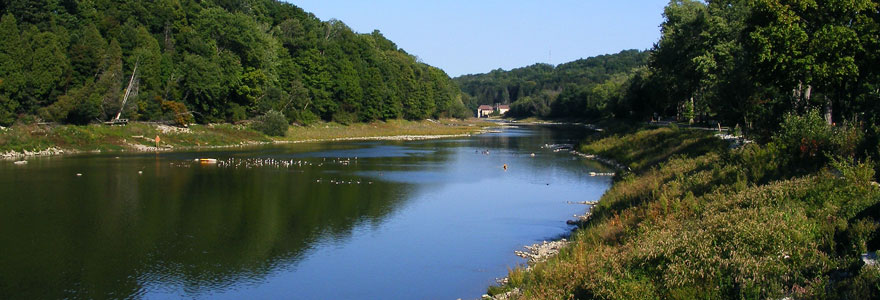News and Updates
Contact
Faculty of Social Science
Social Science Centre
Room 9438
Western University
T. 519-661-2053
F. 519-661-3868
E. social-science@uwo.ca
Fostering Multi-Generational Resilience in the face of the Climate Crisis
March 18, 2022
Story by Rob Rombouts/Photo by Flickr user: husseinabdallah, used under Creative Common License.
“If the land isn’t doing well, then we as a people aren’t doing well, and our youth aren’t doing well,” said Hillary McGregor.
McGregor, an Anishnaabe youth from Whitefish River First Nation, is part of the Climate Crisis & Multi-Generational Resilience Wisdom Council. The council is hosting an online community event on March 24, a 3:00 pm EST, co-hosted by Western’s Indigenous Studies program.
The council is one of a series of Councils being organized by the Alliance for Intergenerational Resilience (AIR), and Vancouver Island University. It brings together Elders, traditional knowledge keepers and youth from Alba (Scotland) and Turtle Island (Canada) as they discuss multi-generational relations and strategies to address climate and ecological crisis.
Lewis Williams, professor in geography & environment, and the Indigenous Studies program, is part of the organizing team and founding director and chair of AIR.
The intent of the council is to “build a global dialogue around issues, traditional ecological knowledge and strategies to address the climate crisis and why an intergenerational approach is important,” said Williams.
McGregor’s interest in the council stems from his work on Indigenous youth leadership and Indigenous resilience. In his work on resilience, as well as supporting spiritual, emotional and mental health of Indigenous youth, “the land comes up. It doesn’t matter what issue is, when knowledge keepers and youth are present, it comes up,” he said.
For McGregor, addressing the climate crisis is an important part of building resiliency in future generations.
Dionovan Grosbeck, Anishnaabe from Deshkaan Ziibii (Chippewa of the Thames First Nation), is also part of the council. Grosbeck said that for Anishnaabe, respecting the earth and place “are not necessarily something that is taught; it’s just so ingrained in our upbringing and culture.”
Grosbeck highlights the value of bringing youth and Elders together to share ideas and solutions. “There are many more commonalities than you would think, between communities and generations,” he said. “Youth may bring more hopefulness; and an older generation may bring more lived experience and can provide guidance. We need to meet in the middle to understand what’s doable.”
The council includes Indigenous voices from Ontario, Vancouver Island, parts of Scotland, and also includes those of Canadian-based Māori academics from Aotearoa. Incorporating international voices and those from many communities, highlights both common understanding as well as differences in perspectives and approaches. Exposure to fresh insights as well as opportunities to build new collaborations can be helpful in generating locally based innovations to address climate crisis.
“Indigenous knowledge can come from a lot of places, and it’s always collective,” said McGregor. “It’s always better to have multiple perspectives.”
Locally, the council hopes to inspire and encourage further activities in southwestern Ontario. Instead of approaching the issue as a series of projects with short-term goals, Grosbeck views it as a fluid project, with “continuance gathering of information.”
“We will continue to move forward, continue to look for input and people will continue to have opportunities to speak,” said Grosbeck. “We want members of the community to feel involved this project.”
The Indigenous Studies Program is the Western lead for the event. Critical issues for the planet such as climate crisis, decolonization, and the relevance of Indigenous Knowledge to addressing global challenges are embedded throughout the program's undergraduate suite of courses. This, combined with the program's increasing focus on local-global activism make it an ideal host for the event along with other Western partners which include the Department of Geography and Environment, Office of Indigenous Initiatives, and the Faculty of Information and Media Studies, said Williams.
Currently awaiting research grant results, later in 2022 or early 2023 the Indigenous Studies Program hopes to host an international community-partnered gathering on Deshkan Ziibi traditional territory with Wisdom Council partners and others on the themes of intergenerational resilience, Indigenous Knowledge and environmental wellbeing.
The public is invited to register to attend the Climate Crisis & Multi-Generational Resilience Wisdom Council, on March 24 at 3:00 pm.
Register in advance at: https://westernuniversity.zoom.us/meeting/register/tJIucuigrz4rGNw9s26rY-1RkanhgiN7mP7J

